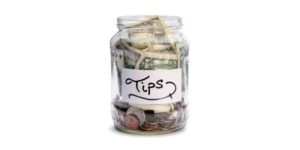 Your employer may pay your wages to you in cash (or with a cash cheque), rather than into your bank account. Paying wages in cash is legal and may be more convenient. Some businesses deliberately use cash transactions to avoid meeting their tax and employee responsibilities. If you receive ‘cash-in-hand’, you need to:
Your employer may pay your wages to you in cash (or with a cash cheque), rather than into your bank account. Paying wages in cash is legal and may be more convenient. Some businesses deliberately use cash transactions to avoid meeting their tax and employee responsibilities. If you receive ‘cash-in-hand’, you need to:
- be paid (at least) the correct award wages
- ensure you don’t end up with a large tax bill because your employer hasn’t taken tax out of your pay
- get the benefit of super contributions
- be covered by your employer’s workers compensation insurance in case of an accident.
Your rights and responsibilities: If you are being paid cash, you:
- must declare the cash as income when you lodge your tax return
- should still receive a pay slip showing all your earnings and the amount of tax taken out
- should receive a payment summary at the end of the year setting out your full earnings for the year and the amount of tax deducted
Declare your tips Tips are income. If you receive cash tips, you must declare them on your tax return – regardless of how you receive them. It makes no difference if tips come from your employer or direct from customers. Some tips are collected for all workers (like in a tip jar) by employers and shared between employees. These tips are part of your wages. Source: Australian Taxation Office
